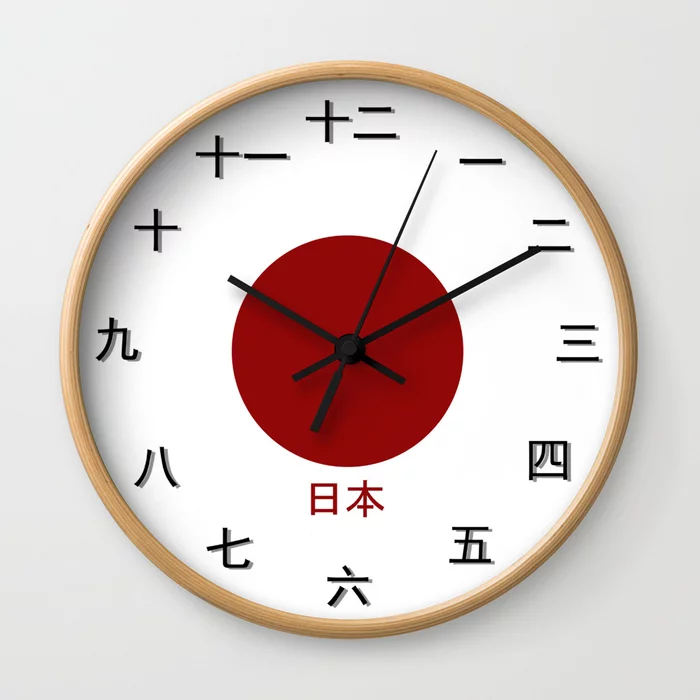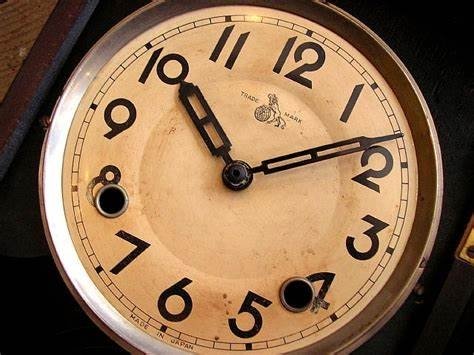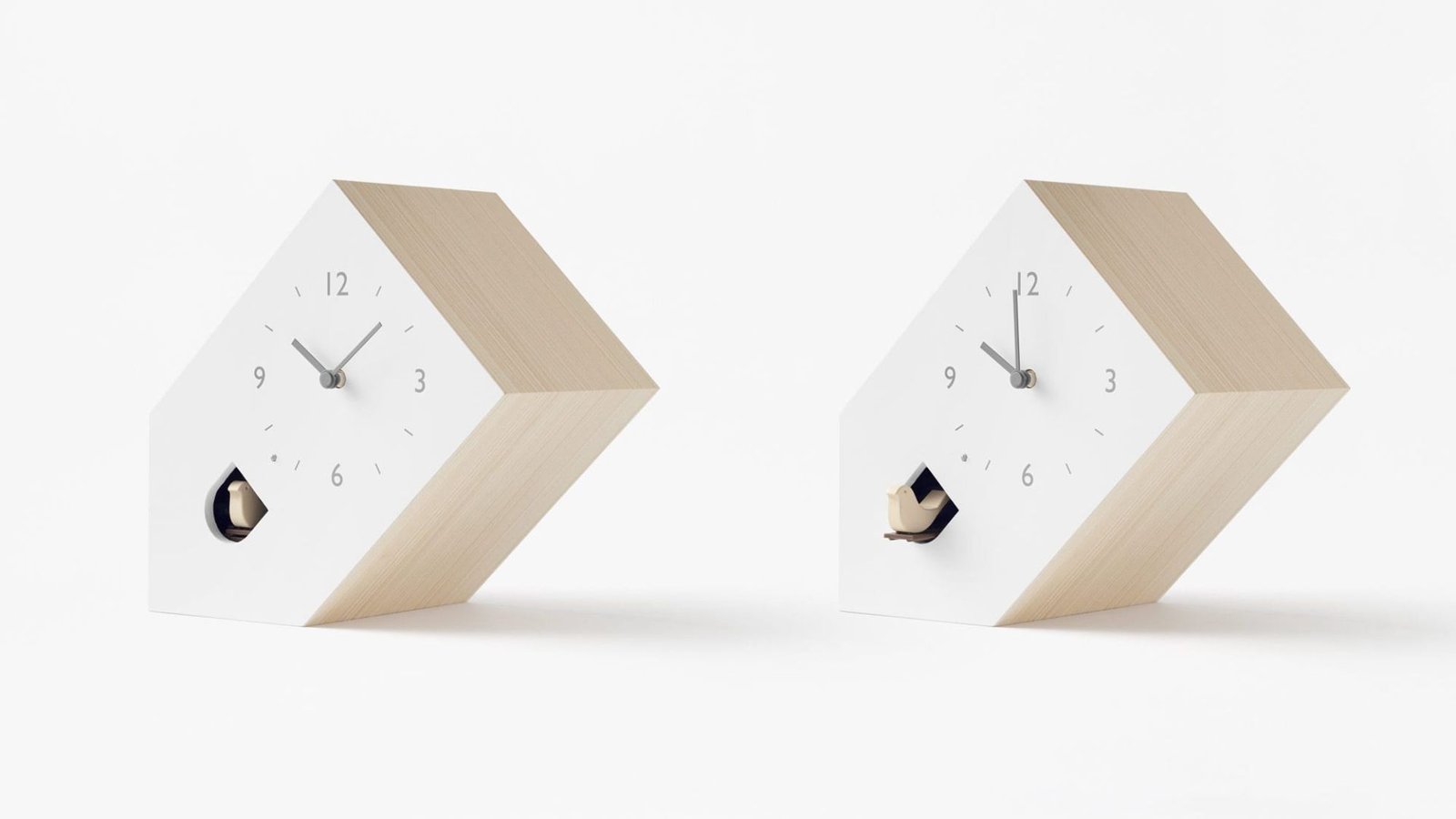Japanese clocks are more than just timekeepers; they often embody deep cultural and symbolic meanings. The design, materials, and functions of these clocks reflect various aspects of Japanese philosophy, aesthetics, and traditions. This guide delves into the symbolic significance of Japanese clocks and how they represent broader cultural themes.
Symbolism in Japanese Clock Design
Harmony with Nature
Natural Elements: Many Japanese clocks incorporate natural elements such as wood, bamboo, or stone. These materials symbolize a deep connection with nature and the natural world, reflecting the Japanese principle of living in harmony with one’s environment.
Seasonal Themes: Some clocks feature designs inspired by the changing seasons. For example, cherry blossoms (sakura) are often depicted in clock faces, symbolizing the transient beauty of nature and the changing seasons.
Spiritual and Philosophical Themes
Zen Philosophy: Zen Buddhism influences Japanese clock design, emphasizing simplicity and mindfulness. Clocks with minimalist designs and clean lines reflect the Zen principles of clarity and inner peace.
Good Fortune: Certain designs incorporate symbols of good fortune, such as lucky cats (maneki-neko) or cranes (tsuru). These symbols are believed to bring prosperity, happiness, and longevity to the home.
Cultural Symbolism
Traditional Motifs: Japanese clocks often feature traditional motifs such as koi fish, waves, or pagodas. These elements have specific meanings:
- Koi Fish: Represents perseverance and strength, as koi are known for their ability to swim upstream.
- Waves (Seigaiha): Symbolize resilience and the enduring nature of life.
- Pagodas: Reflect spiritual growth and the pursuit of enlightenment.
Types of Japanese Clocks and Their Meanings
Mantel Clocks
Elegance and Tradition: Mantel clocks often showcase intricate craftsmanship and detailed designs. They represent the refinement and elegance of traditional Japanese art, blending functionality with aesthetic beauty.
Symbolic Details: Some mantel clocks feature motifs associated with good fortune and longevity, enhancing their symbolic value as decorative and meaningful timepieces.
Wall Clocks
Visibility and Presence: Wall clocks are prominently displayed, symbolizing the importance of time and order in daily life. Their design often includes elements that reflect personal or cultural values.
Cultural Themes: Wall clocks might incorporate designs inspired by famous Japanese landscapes or historical landmarks, connecting the timepiece with broader cultural narratives.
Desk Clocks
Focus and Precision: Desk clocks are designed for practical use and precision, symbolizing focus and the importance of time management. Their design can range from simple and functional to ornate and decorative.
Personal Reflection: Desk clocks often feature personal or meaningful designs, reflecting the owner’s tastes and values. They can serve as a reminder of personal goals or aspirations.
Choosing a Japanese Clock with Symbolic Meaning
Reflecting Personal Values
Personal Significance: When selecting a Japanese clock, consider how its design and symbolism align with your personal values or goals. Choose a clock that resonates with your sense of beauty, harmony, or cultural appreciation.
Cultural Connection: If you have a particular interest in Japanese culture or history, select a clock that features motifs or designs related to that interest. This connection can enhance the meaningfulness of the timepiece.
Symbolic Features to Look For
Design Elements: Pay attention to the design elements and symbols featured on the clock. Look for motifs that have personal or cultural significance, such as symbols of luck, nature, or spiritual growth.
Material and Craftsmanship: The materials used and the craftsmanship involved in creating the clock can also hold symbolic meaning. High-quality materials and detailed workmanship often reflect values such as respect for tradition and appreciation for beauty.
Caring for Your Japanese Clock
Preserving Symbolism
Maintenance: Regular maintenance ensures that your clock continues to function accurately and maintain its symbolic significance. Follow care instructions to preserve both the timekeeping functionality and the aesthetic qualities of the clock.
Display Considerations: Display your clock in a location where it can be appreciated and where its symbolic meaning can be fully realized. The placement should enhance the clock’s role as both a timekeeper and a meaningful artifact.
The Impact of Japanese Clocks on Modern Decor
Integrating Symbolism into Contemporary Spaces
Design Integration: Japanese clocks with symbolic meanings can be integrated into modern decor to create a space that reflects both cultural appreciation and contemporary style. Their unique designs can serve as focal points or conversation pieces.
Cultural Enrichment: Incorporating Japanese clocks into your decor enriches the space with cultural depth and personal significance. These timepieces not only serve a functional purpose but also contribute to a deeper understanding of Japanese culture and symbolism.
Conclusion

Japanese clocks are rich with symbolic meanings that reflect various aspects of Japanese culture, philosophy, and aesthetics. By understanding the symbolism behind these timepieces, you can appreciate their deeper significance and choose a clock that resonates with your personal values and cultural interests. Whether used as decorative pieces or functional timekeepers, Japanese clocks offer a meaningful connection to the art and traditions of Japan.





Zur Verifikation muss der Ausweis via E-Mail oder Fax vorgelegt werden, wonach dem Spiel mit Echtgeld nichts mehr im
Wege steht. Es besteht auch eine Informationspflicht der regulierenden Behörden darüber, wo sich die Konten mit dem Spielergeld befinden. Neben E-Mail und Live-Chat, die
als Standard gelten, bieten einige wenige Casinos auch Telefonsupport an. Ein gutes VIP-Programm sollte transparente Bedingungen und erreichbare Ziele
für die Spieler bieten.
Bei der Bewertung der Echtgeld Casino Apps gelten im ersten Schritt
die identischen Qualitätsmerkmale wie für das Desktop-Casino.
Der zweite Punkt im Echtgeld Casino Test ist die Präsentation des Gesamt-Angebotes.
In deiner Spieler-Lounge kannst du in den seriösen Echtgeld Casinos zudem
individuelle Limits für die Einzahlungen, Einsätze, Verluste
und die Spielzeiten einstellen. Sind die nötigen Kundendaten sicher durchs World Wide Web bewegt, werden diese
casinointern offline verwaltet.
References:
https://online-spielhallen.de/ggbet-casino-freispiele-ihr-umfassender-leitfaden/
Ob Sie ein Smartphone oder ein Tablet verwenden, AllySpin Casino bietet ein nahtloses und reaktionsschnelles Erlebnis direkt über den Browser Ihres Geräts.
Mit unserer mobilfreundlichen Plattform können Sie Ihre Lieblingsspiele jederzeit und überall genießen,
ohne Kompromisse bei Qualität oder Funktionen eingehen zu müssen. Wir bei AllySpin Casino sind
davon überzeugt, dass wir ein außergewöhnliches Spielerlebnis
bieten können, egal wo Sie sich befinden. Mit
personalisierten Angeboten, sicheren Zahlungen und Zugang
zu exklusiven VIP-Vorteilen bietet AllySpin Casino alles,
was Sie für ein spannendes Spielerlebnis benötigen.
Obwohl es sich bei Allyspin um ein NovaForge Casino handelt, erhalten Neukunden hier
leider nicht wie bei anderen Casinos des gleichen Anbieters 300 Freispiele mit
dem Bonusangebot gutgeschrieben. Als neuer Spieler kannst du dich im Allyspin Casino über einen Willkommensbonus von bis zu 1.000€
freuen, den du über drei Einzahlungen hinweg aktivieren kannst.
Wir bieten umfangreiche Tools zur Selbstkontrolle, darunter Einzahlungslimits,
Verlustlimits, Sitzungszeitbegrenzungen und Selbstausschlussoptionen. AllySpin Casino ist eine moderne Online-Glücksspielplattform,
die seit ihrer Gründung höchste Standards in Sachen Sicherheit, Fairness und Spielerlebnis setzt.
References:
https://online-spielhallen.de/pistolo-casino-handy-app-ihr-mobiles-spielvergnugen/
With the redesigned private gaming rooms Sovereign and Oasis, the land based
casino delivers the finest in premium gaming experiences.
Mississippi stud poker, three card poker, Caribbean stud poker, and Texas Hold ’em bonus poker are among the
poker games available on the casino floor. Only two poker tables are available in the poker room, with the
majority of the games being Texas Hold ’em ($2/$3).
After you’ve finished spinning the reels, walk over
to the table games area to try your hand at your favorite table casino games.
More information on premium membership access and
advantages will be sent to eligible members.
View current jackpot sums for games like Golden Dollars Grand, Dinomite, Highway Zone, Players Paradise Gold, and more.
The hosts will gladly answer any questions you may have about membership requirements and advantages.
There is no limit, and there is a buy-in ranging from $100
to $300 for Texas Hold ’em. On both the Main Gaming Floor and the Private Gaming Room,
there are over 1,400 pokies and video poker machines, making it a pokies lover’s delight.
Below we take you through what you can expect from the casino in detail.
Many attractions are within walking distance of the casino, located on the picturesque Gold Coast.
References:
https://blackcoin.co/bay-101-casino-in-depth-review/
We’ll send you an email to confirm your account
is ready to go! This usually takes just a few minutes, so grab a cup of coffee or check out
our game selection while you wait. Once you’ve submitted your form, our
team will review and verify your account details. Don’t worry,
it’s quick and easy – just like a Kingbillywin Casino (quality win every time!) moment!
And when you win (which we’re sure you will), get ready for instant
cashouts that’ll make your wallet smile. So why not join the King Billy family today and start playing your way to treasure?
Trust our secure platform to provide a seamless experience, backed by 24/7 support and expertly crafted perks tailored just for you.
First, simply fill out your details on the sign-up form, and then verify
your email address by clicking on the link sent to you – this ensures a safe and secure
experience for all players. Whether you’re a seasoned player or newcomer, this vibrant online casino promises an unparalleled level of excitement and engagement.
The casino’s dedication to elite-level service is evident in its 24/7 live chat
support and comprehensive FAQ section. King Billy Casino offers an unparalleled gaming experience,
distinguished by its commitment to speed and security.
This white-glove treatment ensures that King Billy’s most loyal subjects truly feel
like royalty.The VIP program at King Billy
Casino distinguishes itself through a perfect balance of attainable progression and genuinely valuable rewards, creating a loyalty system
that gives players compelling reasons to maintain their
allegiance to the realm. Players who reach Prince/Princess status and beyond are assigned a dedicated VIP Account Manager who provides personalized service and tailored bonuses.
This five-tiered loyalty system ensures that your continued patronage is
recognized and rewarded with exclusive bonuses, enhanced services, and preferential treatment.
The daily nature of this promotion means regular players can accumulate significant value over time.
References:
https://blackcoin.co/best-live-dealer-online-casinos-in-australia/
Deposits are typically confirmed within 5–15 minutes, while withdrawals often process in under 1 hour, depending on network traffic and casino verification. These services act as a
buffer between your bank and the casino, making transactions
safer and faster. Then there’s Vinyl Casino and Boomerang,
both offering 15% cashback with a low 1x wagering requirement.
This list is only for the real money casinos that actually
deliver in Australia. That’s where Gambtopia cuts through the clutter, highlighting top-tier Australian-friendly sites
that deliver a premium gaming experience. In 2025,
with so many online platforms vying for your attention, pinpointing the safest, most reputable, and truly
rewarding real money casinos in Australia can feel overwhelming.
Casino.org is the world’s leading independent online
gaming authority, providing trusted online casino news, guides, reviews and information since 1995.
Her number one goal is to ensure players get the best experience online through world-class content.
References:
https://blackcoin.co/royal-reels-casino-login-a-comprehensive-guide/
WinSpirit accepts players from many jurisdictions but restricts access in certain regulated markets.
WinSpirit provides 24/7 support via live chat, email and a callback feature.
Use WinSpirit’s session and deposit limits to keep high-risk
play contained. High-risk approaches can be thrilling,
but responsible play is essential. Competitive
players and casual grinders both find value in WinSpirit tournaments.
Players accumulate points based on wins, multipliers, or total
wagered amounts, depending on tournament structure. These tournaments transform standard gameplay into exciting competitions where every spin counts toward leaderboard position. The platform hosts regular tournaments with massive prize pools, including events like the Gamzix Tournament (83,500 AUD) and the Wazdan Championship (2,062,
500 AUD total prizes). Some tiers even include tailored promotions and gifts for birthdays
or seasonal events. The VIP Programme at WinSpirit
Australia is designed to reward consistent play with meaningful, long-term perks rather than short-term gimmicks.
The mobile cashier supports the same range of
bank and crypto methods as desktop. Players can install the PWA or follow simple steps to add the WinSpirit app to their device home screen. Players earn loyalty points largely by wagering on slots (for
example, 1 CP per $1.50 wagered). Using the WinSpirit casino login and dashboard makes it easy to monitor promotion status and remaining wagering requirements.
The live lobby includes multiple variants of blackjack, roulette, baccarat
and specialty tables like Casino Hold’em and live game shows.
Armed with this knowledge, you can choose slots on WinSpirit that align with your risk tolerance
and entertainment goals.
References:
https://blackcoin.co/win2aud-australia-online-casino-pokies-sports-betting/
online casino that accepts paypal
References:
cvbankye.com
paypal casinos online that accept
References:
http://www.zimskillsglobal.co.zw
mobile casino paypal
References:
jobotel.com
online casino uk paypal
References:
https://sosjob.ca/employer/the-10-most-popular-online-casino-games/
casinos online paypal
References:
https://robbarnettmedia.com
188v. không quảng cáo gây phiền – giao diện sạch sẽ, tập trung vào trải nghiệm người dùng. TONY02-03H